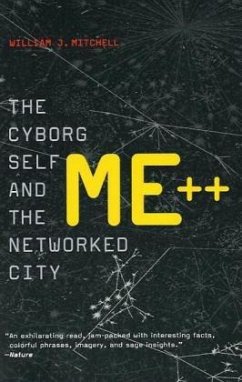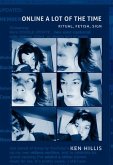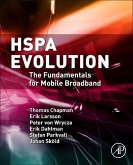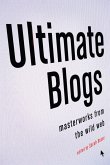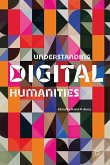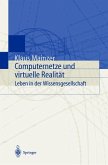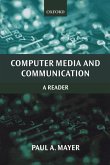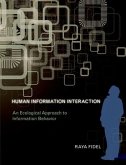How the transformation of wireless technology and the creation of an interconnected world are changing our environment and our lives.
With Me++ the author of City of Bits and e-topia completes an informal trilogy examining the ramifications of information technology in everyday life. William Mitchell describes the transformation of wireless technology in the hundred years since Marconi--the scaling up of networks and the scaling down of the apparatus for transmission and reception. It is, he says, as if 'Brobdingnag had been rebooted as Lilliput'; Marconi's massive mechanism of tower and kerosene engine has been replaced by a palm-size cellphone. If the operators of Marconi's invention can be seen as human appendages to an immobile machine, today's hand-held devices can be seen as extensions of the human body. This transformation has, in turn, changed our relationship with our surroundings and with each other. The cellphone calls from the collapsing World Trade Center towers and the hijacked jets on September 11 were testimony to the intensity of this new state of continuous electronic engagement.
Thus, Mitchell proposes, the 'trial separation' of bits (the elementary unit of information) and atoms (the elementary unit of matter) is over. With increasing frequency, events in physical space reflect events in cyberspace, and vice versa; digital information can, for example, direct the movement of an aircraft or a robot arm. In Me++ Mitchell examines the effects of wireless linkage, global interconnection, miniaturization, and portability on our bodies, our clothing, our architecture, our cities, and our uses of space and time. Computer viruses, cascading power outages, terrorist infiltration of transportation networks, and cellphone conversations in the streets are symptoms of a dramatic new urban condition--that of ubiquitous, inescapable network interconnectivity. He argues that a world governed less and less by boundaries and more and more by connections requires us to reimagine and reconstruct our environment and to reconsider the ethical foundations of design, engineering, and planning practice.
Review text:
'Mitchell's book, Me++ is an attempt to fill in the gaps, to understand the effects of all this on our already media-savvy selves when digital access to the web and to each other is now so commonplace as to have become a utility like gas or water.'
-- Financial Times
'Me++ is an exhilarating read, jam-packed with interesting facts, colorful phrases, imagery and sage insights.'
-- Joanne Baker, Nature
'This book is a total gas to read and the very definition of 'thought-provoking.''
-- Bruce Sterling, Metropolis
'MIT planning professor William Mitchell peers into the gloom better than almost anyone else.'
-- APA
'Mitchell's approach is hopeful (rather than hype-ful)...'
-- Jim McClellan, The Guardian
'Sweeping, startling... provocative.'
-- Tom Vanderbilt, I.D. Magazine
'Me++ is an essential read for anyone trying to make sense of the bewildering advances that are transforming our world.'
-- Richard Mateosian, IEEE Micro
'...Mitchell floats clearly conveyed assertions on a stream of technological and historical detail.'
-- Andrea Oppenheimer Dean, Architectural Record
'An exhilarating, but also sometimes terrifying, account of how humanity is being reshaped by its new machines. This is the best tour guide yet written to the brave new world of the digital present.'
--Mike Davis, author of Dead Cities
'Witty, urbane, and informed by a remarkably wide range of reference, Me++ surveys the ways in which digital technologies are transforming our world and ourselves. I cannot think of a better guide to these coming changes than William Mitchell. He is able to see the future without losing sight of the past, and he embodies the technologically savvy yet still deeply humanistic perspective we need to understand and evaluate where our technologies are leading us--and where we should be leading them.'
--N. Katherine Hayles, Hillis Professor of Literature, English Department and Design/Media Arts, University of California, Los Angeles
'William Mitchell has a rare understanding of the ways in which emerging network culture is changing the social, political, and economic fabric as well as transforming the architecture of cities and the subjects who inhabit them. Savvy, insightful and provocative, Me++ is required reading for anyone baffled by the present and concerned about the future.'
--Mark C. Taylor, Columbia University and Williams College
'Mitchell has done it again! This concluding volume of the 'Mitchell trilogy' is at least as disturbingly insightful, as stylistically scintillating, as its predecessors. If you really want to understand how profoundly our world is being transformed by networked communications, read Me++ now.'
--Professor Sir Peter Hall, Director, Institute of Community Studies, Bartlett Professor of Planning, University College London
With Me++ the author of City of Bits and e-topia completes an informal trilogy examining the ramifications of information technology in everyday life. William Mitchell describes the transformation of wireless technology in the hundred years since Marconi--the scaling up of networks and the scaling down of the apparatus for transmission and reception. It is, he says, as if 'Brobdingnag had been rebooted as Lilliput'; Marconi's massive mechanism of tower and kerosene engine has been replaced by a palm-size cellphone. If the operators of Marconi's invention can be seen as human appendages to an immobile machine, today's hand-held devices can be seen as extensions of the human body. This transformation has, in turn, changed our relationship with our surroundings and with each other. The cellphone calls from the collapsing World Trade Center towers and the hijacked jets on September 11 were testimony to the intensity of this new state of continuous electronic engagement.
Thus, Mitchell proposes, the 'trial separation' of bits (the elementary unit of information) and atoms (the elementary unit of matter) is over. With increasing frequency, events in physical space reflect events in cyberspace, and vice versa; digital information can, for example, direct the movement of an aircraft or a robot arm. In Me++ Mitchell examines the effects of wireless linkage, global interconnection, miniaturization, and portability on our bodies, our clothing, our architecture, our cities, and our uses of space and time. Computer viruses, cascading power outages, terrorist infiltration of transportation networks, and cellphone conversations in the streets are symptoms of a dramatic new urban condition--that of ubiquitous, inescapable network interconnectivity. He argues that a world governed less and less by boundaries and more and more by connections requires us to reimagine and reconstruct our environment and to reconsider the ethical foundations of design, engineering, and planning practice.
Review text:
'Mitchell's book, Me++ is an attempt to fill in the gaps, to understand the effects of all this on our already media-savvy selves when digital access to the web and to each other is now so commonplace as to have become a utility like gas or water.'
-- Financial Times
'Me++ is an exhilarating read, jam-packed with interesting facts, colorful phrases, imagery and sage insights.'
-- Joanne Baker, Nature
'This book is a total gas to read and the very definition of 'thought-provoking.''
-- Bruce Sterling, Metropolis
'MIT planning professor William Mitchell peers into the gloom better than almost anyone else.'
-- APA
'Mitchell's approach is hopeful (rather than hype-ful)...'
-- Jim McClellan, The Guardian
'Sweeping, startling... provocative.'
-- Tom Vanderbilt, I.D. Magazine
'Me++ is an essential read for anyone trying to make sense of the bewildering advances that are transforming our world.'
-- Richard Mateosian, IEEE Micro
'...Mitchell floats clearly conveyed assertions on a stream of technological and historical detail.'
-- Andrea Oppenheimer Dean, Architectural Record
'An exhilarating, but also sometimes terrifying, account of how humanity is being reshaped by its new machines. This is the best tour guide yet written to the brave new world of the digital present.'
--Mike Davis, author of Dead Cities
'Witty, urbane, and informed by a remarkably wide range of reference, Me++ surveys the ways in which digital technologies are transforming our world and ourselves. I cannot think of a better guide to these coming changes than William Mitchell. He is able to see the future without losing sight of the past, and he embodies the technologically savvy yet still deeply humanistic perspective we need to understand and evaluate where our technologies are leading us--and where we should be leading them.'
--N. Katherine Hayles, Hillis Professor of Literature, English Department and Design/Media Arts, University of California, Los Angeles
'William Mitchell has a rare understanding of the ways in which emerging network culture is changing the social, political, and economic fabric as well as transforming the architecture of cities and the subjects who inhabit them. Savvy, insightful and provocative, Me++ is required reading for anyone baffled by the present and concerned about the future.'
--Mark C. Taylor, Columbia University and Williams College
'Mitchell has done it again! This concluding volume of the 'Mitchell trilogy' is at least as disturbingly insightful, as stylistically scintillating, as its predecessors. If you really want to understand how profoundly our world is being transformed by networked communications, read Me++ now.'
--Professor Sir Peter Hall, Director, Institute of Community Studies, Bartlett Professor of Planning, University College London

